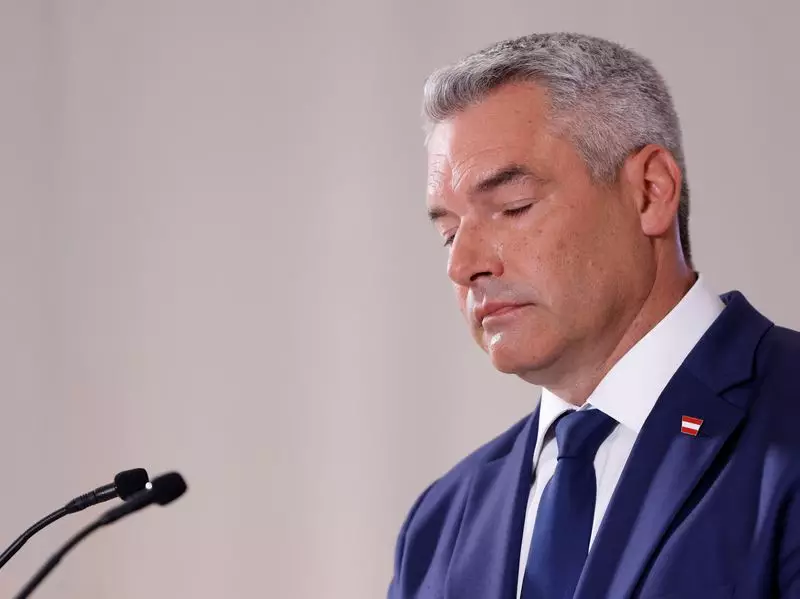The political landscape in Austria recently encountered heightened volatility with the resignation of Chancellor Karl Nehammer, a development stemming from the collapse of coalition talks aimed at circumventing a partnership with the far-right Freedom Party (FPO). This unexpected turn has ignited a leadership reshuffle within the ruling Austrian People’s Party (OVP), prompting both immediate reassessments of governmental strategy and broader implications for the future of Austrian democracy.
On a seemingly ordinary Sunday, the leadership of Austria’s OVP convened an urgent crisis meeting, prompted by Nehammer’s resignation announced the previous day. The gravity of the situation reflects not merely leadership vacuums but an unfolding political narrative that threatens the existing balance of power in Austrian politics. As party Secretary-General Christian Stocker was positioned as the interim leader following this meeting, the OVP’s tacit acknowledgment of an instability that could spiral into a larger national crisis became evident.
Political analysts are keenly observing this interim arrangement, especially in light of Nehammer’s previously staunch refusal to align with FPO leader Herbert Kickl. While claims of privilege and principled stances against conspiratorial politics were made, practical considerations now loom larger, as the FPO stands poised as a power broker after recently emerging as the dominant force in September’s elections with approximately 29% of the vote.
Attempts by centrist parties to forge a coalition to resist the growing influence of the FPO have faltered dramatically. Proponents of this coalition aimed to present a united front, but their failure has cleared a path for the far-right party to bolster its electoral prospects further. With the FPO’s support reportedly widening, political analysts cannot dismiss the probability that Austria may face a snap election—an outcome feared by many within the OVP’s ranks.
Markus Wallner, the governor of Vorarlberg, articulated the unease permeating the party leadership, suggesting a preference to avoid immediate elections in favor of establishing a stable government. His remarks underline a growing concern not just over governance but the very essence of Austria’s political cohesion amidst rising populist sentiments and euroscepticism.
Implications of a Far-Right Ascendancy
The possibility of an FPO-led government poses significant implications for Austria’s political fabric. The FPO’s hardline stance on immigration resonates deeply with segments of the electorate who feel detached from the establishment’s policy direction. Additionally, comparisons between the OVP and FPO raise critical questions about party identity and ideological overlap. The historical precedent of their prior coalition (2017-2019) continues to haunt present negotiations, with the memory of the scandal that precipitated their split lingering in the public consciousness.
Compounding this issue is the fact that should an OVP-FPO alliance materialize, the OVP would face the uncomfortable scenario of being the junior partner, thereby fundamentally altering its long-established political stature. For many traditionalists within the OVP, such an alignment would harbor considerable discomfort, raising questions about the party’s effectiveness and future viability.
With increasing unemployment and inflation gripping Austria, citizens look to their leaders for decisive action rather than protracted political maneuvering. This makes the OVP’s next steps critical, as the appointment of Stocker might serve only as a temporary fix. The potential rise of other candidates, including figures like Wolfgang Hattmannsdorfer, may signal a shift towards leadership that is more accommodating to a partnership with the FPO—a strategy that could either stabilize or further fragment the OVP.
Ultimately, the uncertainty within Austria’s political elite may precipitate broader societal repercussions. Public sentiment is volatile; the demand for a stable, responsive government has never been so essential. Whether Austrian governance can adapt to the new political realities marked by populism and the resurgence of far-right ideologies remains to be seen.
In this tense political atmosphere, all eyes remain fixed on President Alexander Van der Bellen, who must now navigate a landscape fraught with risk, volatility, and the potential reshaping of Austria’s political destiny.

